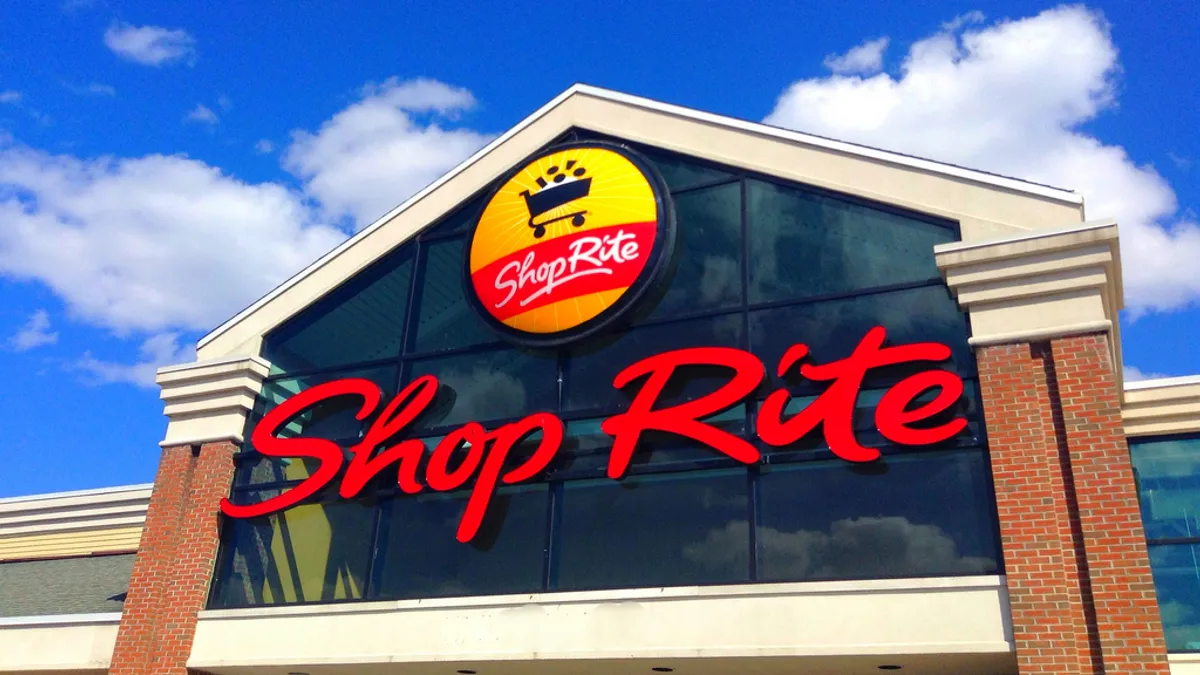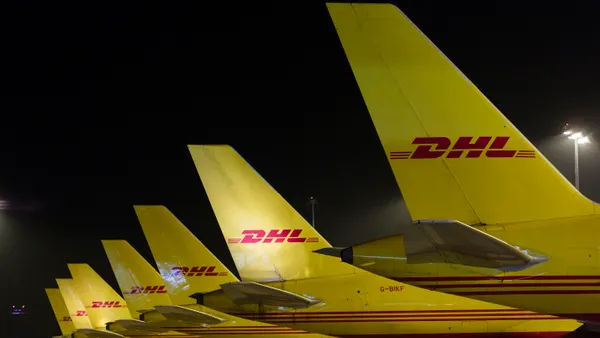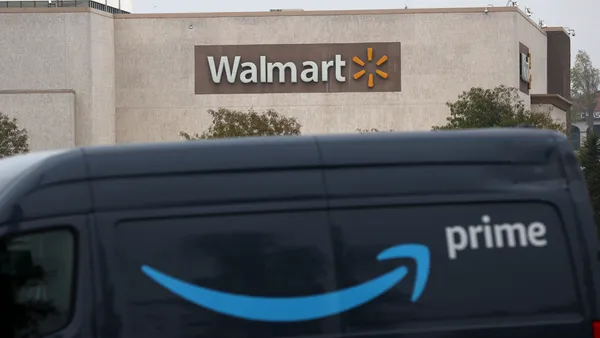Dive Brief:
- Wakefern has become the latest grocery company to test a micro-fulfillment solution for online orders, according to a news release. Cooperative member Inserra Supermarkets and its ShopRite stores opened a standalone 24,300-square-foot mini fulfillment warehouse in Clifton, New Jersey earlier this month in partnership with Takeoff Technologies.
- The micro-fulfillment center (MFC) in Clifton will fill online orders for 10 ShopRite stores located in New Jersey and New York. Takeoff’s centers utilize advanced artificial intelligence and robotics to assemble as many as 60 orders in just a few minutes. The technology company touts improved fulfillment efficiency and its ability to fit fulfillment centers in high-density urban and suburban neighborhoods.
- Under the agreement, Wakefern and Takeoff will build an undisclosed additional number of MFCs in the future.
Dive Insight:
Clifton, New Jersey is surrounded by ShopRite stores — including three that sit within a five-mile radius — making it a sensible location for an automated fulfillment facility. Takeoff’s micro-warehouse can serve as a central hub for deliveries while also filling orders faster and more efficiently than a traditional store-pick model.
The measure of success for Inserra ShopRites, as well as for other retailers like Stop & Shop, Sedano’s, Walmart and Albertsons that are testing micro-fulfillment, is whether the economics are compelling enough over time to justify expansion. MFCs can lower the per-order cost of fulfillment, but having one alone won’t boost consumer demand. Grocery e-commerce adoption remains stubbornly low, and although that’s projected to change, it may not do so fast enough for retailers to justify pricey automated technology across their footprint.
What’s the right fulfillment approach to support online growth? It’s a question retailers across the globe are asking. The only thing that can be said with any certainty right now is that grocers are testing multiple options to fill a range of consumer needs. It’s still early to assess the performance of MFCs, though Wakefern’s expansion agreement indicates it sees promise in the model.
For Wakefern, the partnership fits with its mission to stay on the cutting edge of e-commerce technology. The grocery cooperative’s first online ordering site went live in 2002 and its first app came out in 2009. Since then, it’s revamped its site with enhanced lifestyle and product content. As Steve Henig, Wakefern’s vice president of digital commerce and analytics noted during a presentation at last year’s Groceryshop conference, online consumers spend more money overall with the company.
For Takeoff, this is yet another valuable tie-up that should encourage investors and further raise its profile among retailers. It also puts the company within striking distance of New York City, where high density and high demand could provide the ultimate test for micro-fulfillment. Takeoff may not live or die by grocery orders, however. The company’s deal to build 50 MFCs through Knapp Technologies shows there’s interest in the broader logistics industry, and perhaps even in other retailer sectors.















